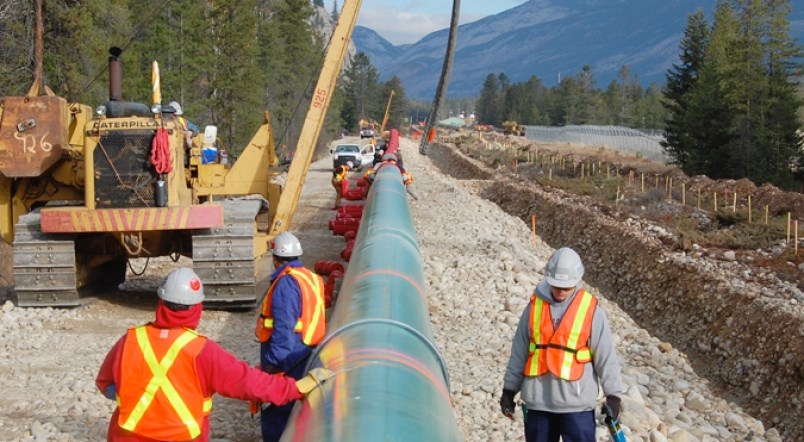The National Energy Board has created a process to resolve future permitting disputes between Trans Mountain and local governments.
Trans Mountain and the City of Burnaby came to an impasse last October, when Trans Mountain announced it was unsuccessful in receiving local permits related to the city’s tree-cutting and zoning bylaws. It asked the NEB to intervene to allow it to continue work. (The NEB ruled in Trans Mountain’s favour in December but didn’t give its reasons.)
The Texas-based company alleged the City of Burnaby was purposefully delaying the $7.4-billion pipeline expansion project by not issuing the appropriate documents, but the city maintained it acted in good faith and Trans Mountain needed to wait in line like everyone else.
In November, Trans Mountain filed a motion with the NEB, requesting it establish a process to deal with future municipal and provincial permitting and authorization disputes. The Attorney General of British Columbia, the City of Chilliwack, the City of Surrey, Katzie First Nation and the Township of Langley all opposed the motion, while the Attorney General of Canada and Alberta supported it.
On Thursday, the NEB unveiled a dispute resolution process for the pipeline project.
“The NEB believes this generic process will provide a measure of certainty regarding the regulatory tools available to resolve permitting disputes or disagreements in limited circumstances where Trans Mountain and provincial and municipal authorities are unable to do so,” according to a press release.
“The NEB expects all sides to approach permitting processes in good faith. While the project has been determined to be in the public interest, Trans Mountain is still required to comply with applicable provincial and municipal laws. Trans Mountain is also expected to exercise good project planning and allow sufficient time to properly engage provinces and municipalities.”
According to the national energy regulator, under the new process, it’ll take between three to five weeks to reach a decision from the time a request is filed with the NEB.
The NEB also released its reasons for granting Trans Mountain’s request to continue work at its Burnaby Terminal, Westridge Marine Terminal and at a temporary worksite.
The board found the City of Burnaby’s process to review Trans Mountain’s permit applications was “not reasonable.” The NEB said the review time took two to three times longer than the city originally estimated; Burnaby’s process made it very difficult for Trans Mountain to understand what the permitting requirements were and how they could be met; and Burnaby “repeatedly denied” Trans Mountain’s request for help with its applications.
That being said, no political interference was found by the NEB.
The decision noted the pipeline expansion has been lawfully approved to proceed, has already undergone extensive federal review, and it’s not open to Burnaby to stop it.
“In this overall context, the board would have expected to see, in general, reasonable efforts on Burnaby’s part to work efficiently and cooperatively with Trans Mountain in order to help ensure that when (not if) the project proceeds, matters of local concern that are reflected in Burnaby’s bylaw requirements are understood and addressed to the extent possible. In the board’s view, this, for the most part, did not occur.”
Greg McDade, one of the city’s lawyers, couldn’t say whether Burnaby will be appealing the NEB’s ruling.
He found the NEB’s reasons “quite contrary to the evidence.”
“The significant thing about this judgement is they (the NEB) found, for sure, that there was no political interference, and there was no evidence that bad faith or an improper motive was causing any deliberate delay by Burnaby,” said McDade. “They seem to have made their decision on the assumption that they get to decide how long is reasonable (in the permitting process), but they have no expertise in that.”
Due to permitting issues, Kinder Morgan says its project's completion date is now December 2020. The start-up date was originally late 2019.



